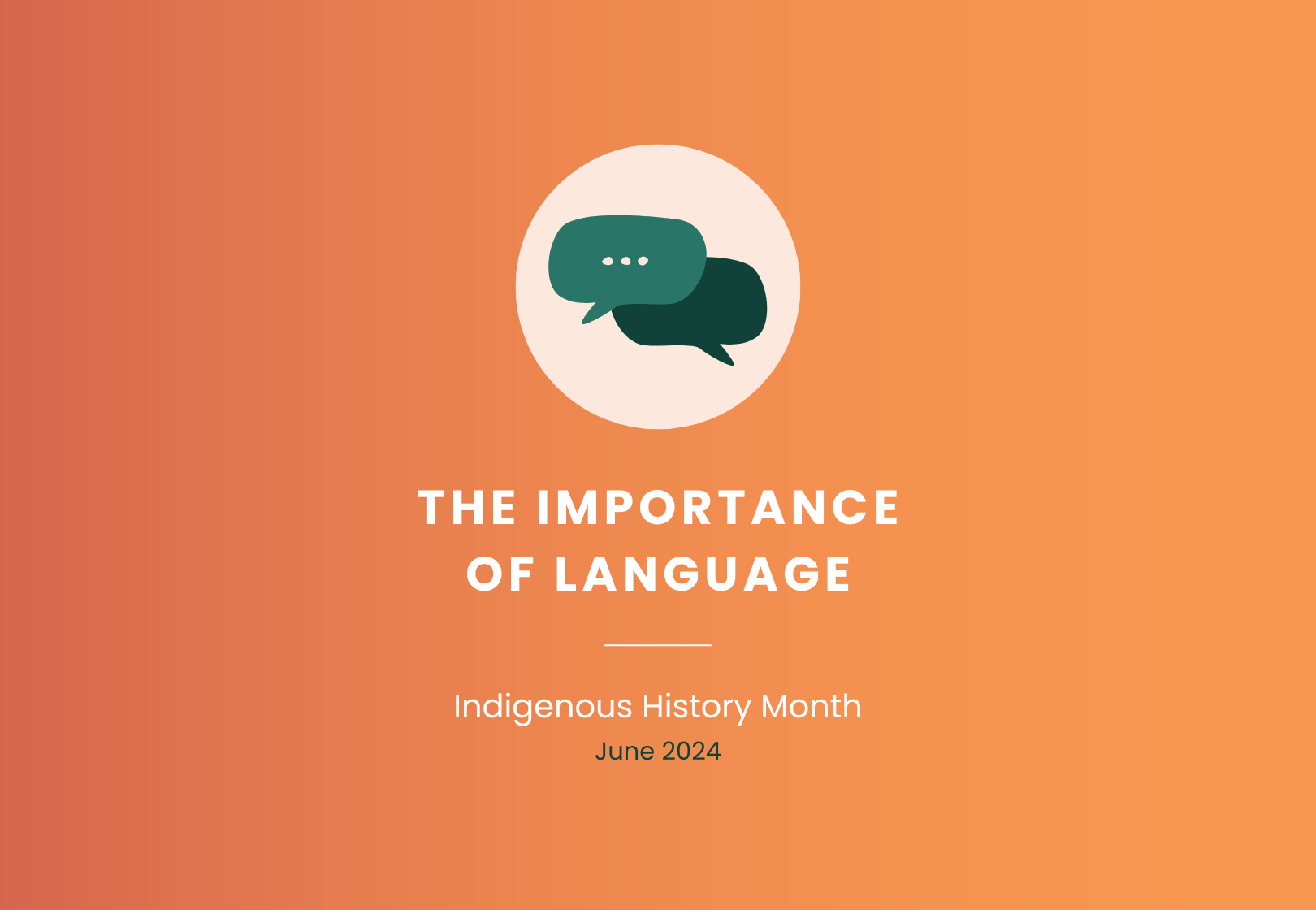The Importance of Language
During Indigenous History Month, we’ve been reflecting on how we speak about Indigenous people, reconciliation, and colonialism.
Jun 24 2024 | Connective

At Connective, the language and words we use matter. When communicating about people in our communities, we always strive to uphold the principles of dignity, respect, compassion, and accountability.
During Indigenous History Month, we’ve been reflecting on how we speak about Indigenous people, reconciliation, and colonialism. Recognizing the weight and value that language holds, we are committed to demonstrating respect for Indigenous communities by understanding the terms we use and ensuring we communicate in culturally appropriate ways.
Evolving Language
Over the years different terms have been used when speaking about or referring to Indigenous people. Several of these, however, have underlying connotations that can be hurtful and harmful. Words are also continuously being updated and improved, and it’s important to stay on top of these trends.
For example, a few years ago many people used to the word ‘Aboriginal.’ In more recent years, that term has mostly been replaced with ‘Indigenous’, for three reasons:
- The term ‘Aboriginal’ was historically used in the context of government – due to the harm the Canadian government caused First Nations, many have decided distance themselves from this term, preferring to use ‘Indigenous’ in its place.
- The Latin prefix “ab” means “away from” or “not.” ‘Aboriginal,’ therefore, technically means “not from here” – the opposite of inclusivity, and a complete mischaracterization of Indigenous people’s relationship to this land.
- When used in a global context, it creates a more united collaboration among Indigenous communities.
What does ‘Indigenous’ mean?
Indigenous is an umbrella term that refers to multiple groups of people, and can be used when the title of someone’s Nation is unknown. In Canada, there are three distinct groups of Indigenous people: First Nations, Metis, and Inuit.
It is important to capitalize the “I” in Indigenous, as a way of showing respect and recognizing the significance of Indigenous identities and cultures.
We encourage our non-Indigenous community members to do their research when communicating about Indigenous people, to ensure the correct use of terminology.
Here are some resources we recommend:
- Indigenous Peoples Terminology: Guidelines for Usage: https://www.ictinc.ca/blog/indigenous-peoples-terminology-guidelines-for-usage
- UBC Indigenous Foundations Terminology Guide: https://indigenousfoundations.arts.ubc.ca/terminology/
Preserving Indigenous Languages
Indigenous languages are rooted in oral teaching – meaning stories, ideas, and other cultural materials are presented, received, and transmitted through voice, rather than through writing.
When a language is lost, so too are the stories and histories that live within it. Due to colonization and the attempted assimilation of Indigenous communities, many Indigenous languages have been lost, and many others are vulnerable, endangered, and at risk. According to the United Nations, one Indigenous language dies every two weeks. It’s important that we are aware of this issue, and work to preserve and protect endangered Indigenous languages.
To learn more about the assimilation of languages, here are a few resources:
- Indigenous Language Revitalization Platform: https://www.firstvoices.com/
- Native Women’s Association of Canada: https://nwac.ca/assets-knowledge-centre/NWAC-languages_2022-05-16-184323_guwy.pdf
- Lindsay Morcom: A history of Indigenous languages and how to revitalize them: https://www.youtube.com/watch?v=BoRXbjGJrI0
One way people can get more involved with Indigenous language is by learning some Indigenous words. A great way to do this is by visiting a local art gallery or museum focusing on Indigenous history.
Other sources of language are books written in various Indigenous languages. You can find these at public libraries and bookstores.
Here are some places to start:
- Vancouver Public Library Books for Younger Readers: https://vpl.bibliocommons.com/list/share/82873109/1280697747?page=1
- Strong Nations Bookstore: https://www.strongnations.com/store/item_list.php?it=&cat=4121&p=8
- Yukon Public Library Indigenous Book Club: https://search.yukonlibraries.ca/MyAccount/MyList/234
Some Nations also have websites with resources about their respective languages, such as parts of the Yukon (https://ynlc.ca/).
As an Indigenous-serving organization, recognition of Indigenous languages and the ways we talk to and about people are inseparable from our work and our ongoing journey of Reconciliation.
To learn more about Indigenous History Month and how Connective is recognizing this month, please visit:
https://connective.ca/blog/recognizing-indigenous-history-month-2024/